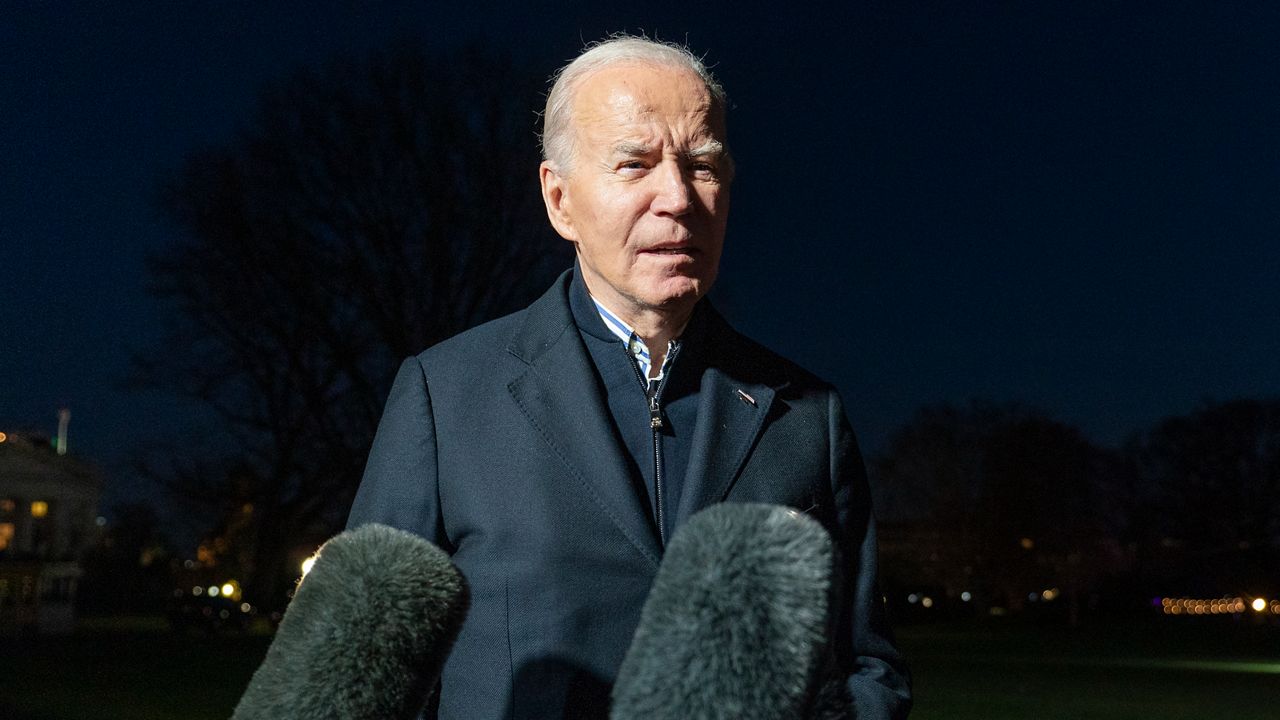In a letter to congressional leaders on Wednesday, President Joe Biden wrote he ordered airstrikes on Christmas Day on three facilities he said were used by “Iran-affiliated groups” in Iraq to deter Tehran and their allies from attacking U.S. personnel in the region. The attack came hours after the White House said explosive drones launched by Iranian proxies in the country wounded three U.S. servicemembers at a northern Iraq military base.
“The strikes were intended to degrade and disrupt the ongoing series of attacks against the United States and our partners, and to deter Iran and Iran-backed militia groups from conducting or supporting further attacks on United States personnel and facilities,” Biden wrote to Speaker Mike Johnson, R-La., and the Senate’s president pro tempore, Sen. Patty Murray, D-Wash.
One of the wounded Americans was in critical condition, National Security Council spokesperson Adrienne Watson said on Christmas morning. The U.S. military command in the Middle East said in a statement that the strikes “likely killed a number of Kataib Hezbollah militants,” but that no civilians were harmed.
The Iraqi government disputed that assessment and the prime minister’s office reported 18 people, including civilians, were injured.
“This constitutes a clear hostile act. It runs counter to the pursuit of enduring mutual interests in establishing security and stability, and it opposes the declared intention of the American side to enhance relations with Iraq," the prime minister’s office said in a statement, arguing that ISIS and other militant groups “no longer pose a threat to Iraqi national security.”
“We will not allow any entity to undermine what has been accomplished and solidified through invaluable sacrifices,” the statement continued.
The U.S. has thousands of troops in Iraq training Iraqi forces and combating remnants of the Islamic State group, and hundreds in Syria, mostly on the counter-ISIS mission. They have come under dozens of attacks, though as yet none fatal, since the Israel-Hamas war began on Oct. 7, with the U.S. attributing responsibility to Iran-backed groups.
The U.S. military has said they have conducted numerous airstrikes in Iraq and Syria since the outbreak of the war, including via unmanned drone and an AC-130 gunship.
Kata’ib Hezbollah is a U.S.-designated terrorist organization and an Iranian-sponsored militia “operating in Iraq with ancillary operations throughout Syria” that fought against U.S. and coalition forces during the Iraq War, according to the nonprofit Counter Extremism Project.
“The strikes were taken to deter future attacks and were conducted in a manner designed to limit the risk of escalation and minimize civilian casualties,” Biden wrote. “I directed the strikes in order to protect and defend our personnel who are in Iraq conducting military operations pursuant to the 2001 Authorization for Use of Military Force.”
The legal authority to launch airstrikes in a country where the U.S. war effort nominally ended in 2011 is derived from the 22-year-old Authorization for Use of Military Force passed by Congress in the aftermath of the 9/11 attacks. The authorization allows the president to use military force against anyone “he determines planned, authorized, committed, or aided the terrorist attacks that occurred on September 11, 2001.” It has been used to justify military operations in the Middle East, Africa and the Pacific by presidents since then.
In a January 2021 speech, then-Secretary of State Mike Pompeo — a hardliner when it comes to U.S. relations with Iran — said “there’s no evidence Iran helped plan or had foreknowledge of the 9/11 attacks,” though he and other U.S. officials have drawn connections between Tehran and al-Qaeda, who harbored the Taliban terrorists who orchestrated the attacks.
Under the AUMF, U.S. forces has conducted over a dozen strikes on the al-Shabaab terrorist group in Somalia this year, according to U.S. Africa Command. In a separate counterterrorism operation, also justified as legal under the AUMF, the U.S. has over 1,000 troops stationed in Niger, the site of a recent coup. The Pentagon has said it will continue maintaining its antiterrorism troop presence in the country, even as France withdrew its own forces this month.
Elsewhere in Iraq and Syria this week, Turkiye launched airstrikes on 70 sites they associated with militant groups of ethnic Kurds. The Turkish defense minister said 59 Kurdish militants were killed in retaliation for the deaths of 12 Turkish soldiers in Iraq, while local Kurdish officials and a relief group in Syria said civilians were killed in some of the strikes.
The Associated Press contributed to this report.



